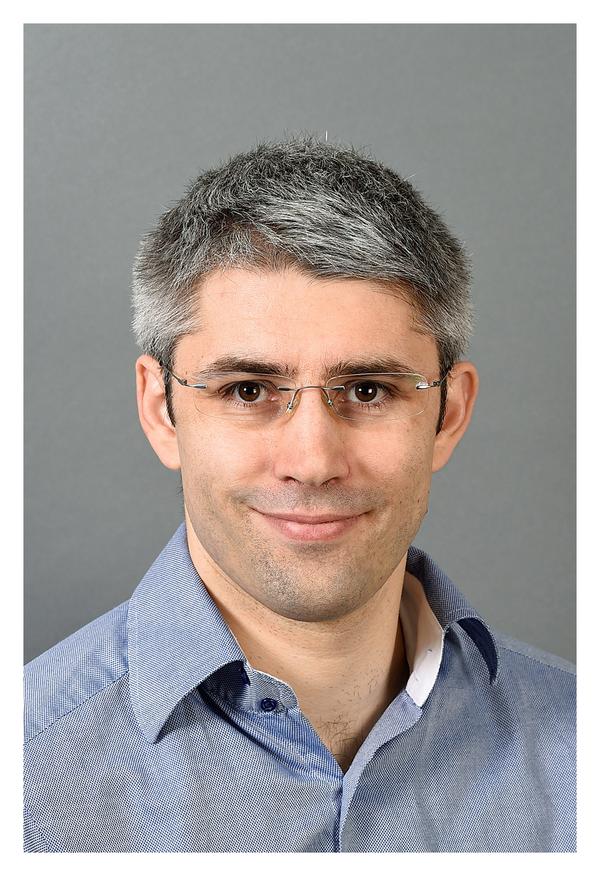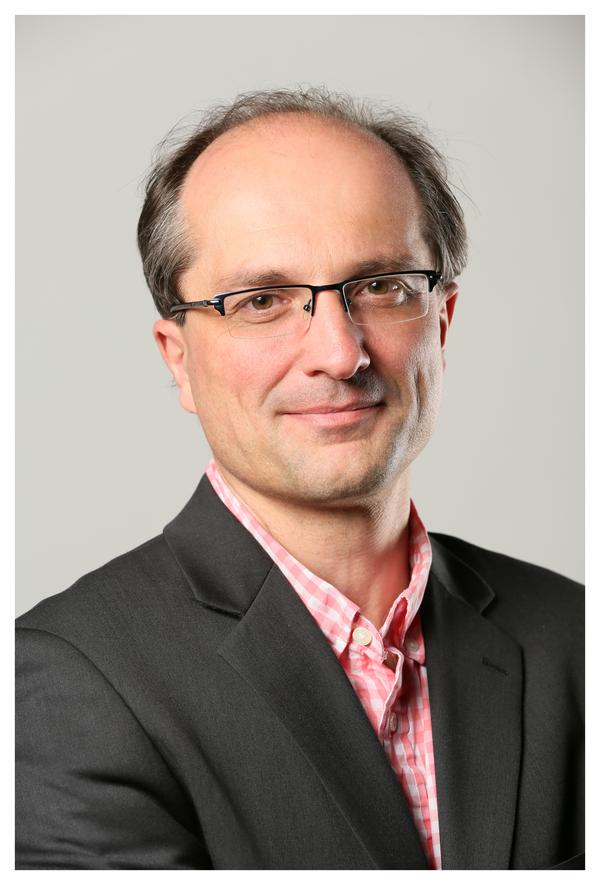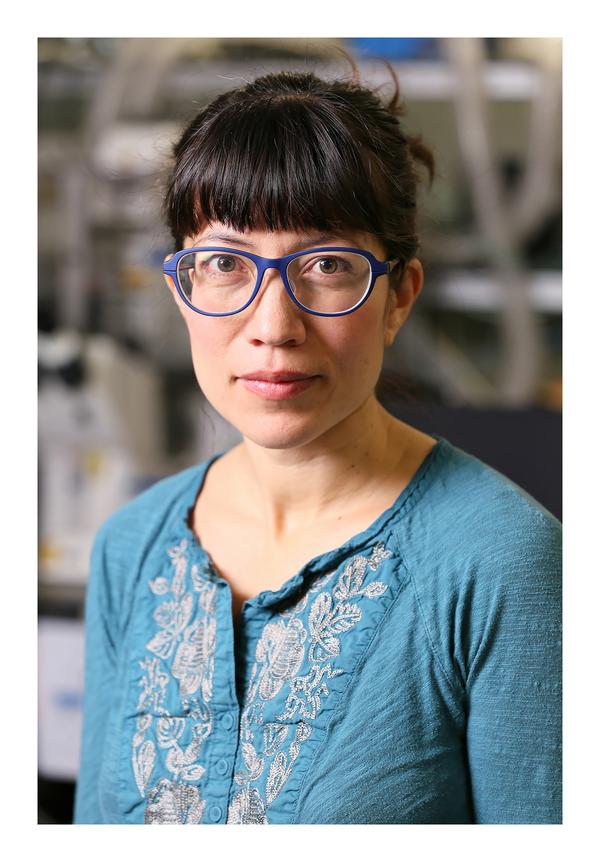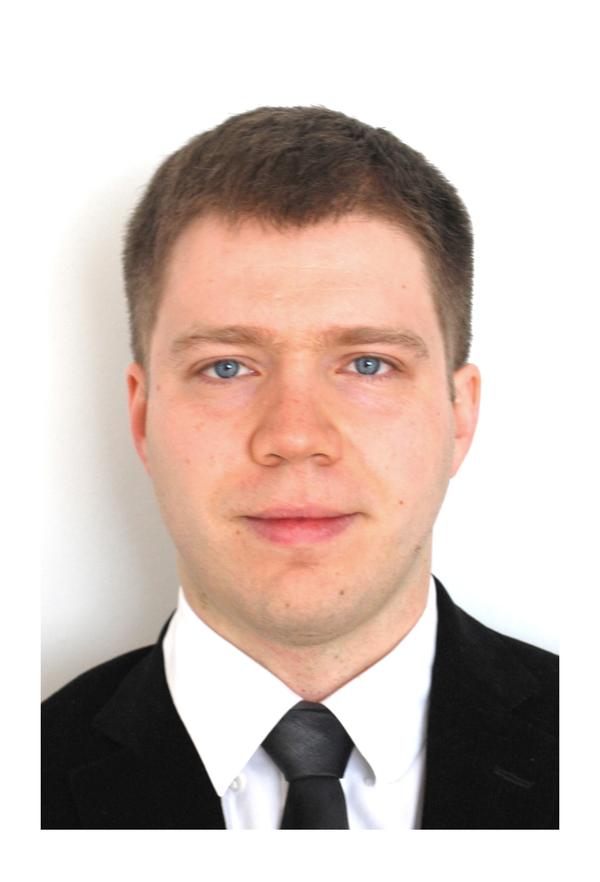Nominations of EPFL professors

© 2016 EPFL Alain Herzog
During its March session, the ETH Board nominated 11 new EPFL professors.
 Maartje Bastings was named as Tenure Track Assistant Professor of Materials Science and Engineering in the School of Engineering (STI).
Maartje Bastings was named as Tenure Track Assistant Professor of Materials Science and Engineering in the School of Engineering (STI). The research of Maartje Bastings focuses on dynamic reciprocity in programmable nano-materials. She has achieved international recognition for developing a nanocapsule from folded DNA for the delivery of therapeutic agents to the body. One of the greatest challenges was that DNA origami is not stable under physiological conditions; Maartje Bastings has developed novel coating to inhibit the unravelling of DNA.
 Jean-Philippe Brantut was named as Tenure Track Assistant Professor of Atomic, Molecular and Optical Physics in the School of Basic Sciences (SB)Jean-Philippe Brantut is a promising young scientist. He has already gained international attention for his work in the area of quantum Fermi gases and has the potential to achieve a leading position in this field. Jean-Philippe Brantut stands out for his impressive ability to design and implement complex experimental test assemblies. This has enabled him to gain striking results on transport phenomena in cold atoms and to quantify the conductivity of microchannels.
Jean-Philippe Brantut was named as Tenure Track Assistant Professor of Atomic, Molecular and Optical Physics in the School of Basic Sciences (SB)Jean-Philippe Brantut is a promising young scientist. He has already gained international attention for his work in the area of quantum Fermi gases and has the potential to achieve a leading position in this field. Jean-Philippe Brantut stands out for his impressive ability to design and implement complex experimental test assemblies. This has enabled him to gain striking results on transport phenomena in cold atoms and to quantify the conductivity of microchannels. Professor Volkan Cevher was named as Associate Professor of Electrical and Electronic Engineering in the School of Engineering (STI).
Professor Volkan Cevher was named as Associate Professor of Electrical and Electronic Engineering in the School of Engineering (STI). In recent years Volkan Cevher has become a recognised leader in his area of research. His main focus is on investigating fundamental questions in the fields of signal processing, statistics and machine learning, for which he has developed new theories, models and algorithms for this purpose. Volkan Cevher uses his research findings to improve practical applications in areas such as magnetic resonance imaging.
 Professor Holger Frauenrath was named as Associate Professor of Materials Science and Engineering in the School of Engineering (STI).
Professor Holger Frauenrath was named as Associate Professor of Materials Science and Engineering in the School of Engineering (STI). Holger Frauenrath is an expert in the formation of structures at the supramolecular, microscopic and nanoscopic levels, making use of the controlled implementation of disorder in materials. He has received widespread recognition for his research, in particular, the development of special amphiphilic substances that are both hydrophilic and lipophilic and act as reactive precursors.
 Professor Auke Ijspeert was named as Full Professor of Bioengineering in the School of Engineering (STI).
Professor Auke Ijspeert was named as Full Professor of Bioengineering in the School of Engineering (STI). Auke Ijspeert conducts research at the interface of robotics, computer-aided neurosciences and machine learning. He pursues two linked goals: developing animal robots and the study of living animals using these robots. He has attracted much attention with his Salamandra Robotica, the first amphibious robot that is capable of three types of locomotion – swimming, wriggling and walking. Auke Ijspeert is widely recognised as an innovator in the field of biorobotics.
 Professor Jean-Paul Kneib was named as Full Professor of Astrophysics in the School of Basic Sciences (SB)
Professor Jean-Paul Kneib was named as Full Professor of Astrophysics in the School of Basic Sciences (SB) Jean-Paul Kneib is an internationally recognised and much-cited scientist. He has many years of wide-ranging experience in different areas of experimental astrophysics. These include accurately determining the distribution of dark matter in space, working on detailed cartographic representations of outer space using gravitational lensing, and studies on the propagation velocity of the universe. Jean-Paul Kneib's reputation is demonstrated by the Advanced Grant he was awarded in 2012 by the European Research Council (ERC).
 Professor Suliana Manley was named as Associate Professor of Physics in the School of Basic Sciences (SB)
Professor Suliana Manley was named as Associate Professor of Physics in the School of Basic Sciences (SB) Suliana Manley is a very active and creative researcher in the field of high-resolution optical instruments. She makes use of them to investigate complex biological systems. This has enabled her to obtain findings on the spatial distribution of DNA in living cells, for example. She works in an emerging area in which further key developments are expected.
 Professor Véronique Michaud was named as Associate Professor of Materials Science and Engineering in the School of Engineering (STI).
Professor Véronique Michaud was named as Associate Professor of Materials Science and Engineering in the School of Engineering (STI). Véronique Michaud has many years' experience of teaching and research. Her work focuses on the development of new, intelligent composite materials and their production processes. She has successfully developed a material that has shape memory and can repair itself if it cracks. Véronique Michaud combines a deep understanding of physical phenomena with wide-ranging knowledge of the fabrication of composite materials and top-class technological expertise.
 Professor Zsolt Patakfalvi was named as Tenure Track Assistant Professor of Mathematics Physics in the School of Basic Sciences (SB)
Professor Zsolt Patakfalvi was named as Tenure Track Assistant Professor of Mathematics Physics in the School of Basic Sciences (SB)Zsolt Patakfalvi is a gifted mathematician with an ability to solve the most challenging problems in the field of algebraic geometry. His specialist area is the classification of algebraic varieties, where he has recently made notable contributions to the field known as positive characteristic. The appointment of Zsolt Patakfalvi strengthens teaching and research at EPFL in a key area of mathematics which has an impact on other subjects.
 Alexandre Persat was named as Tenure Track Assistant Professor of Life Sciences in the School of Life Sciences (SV).
Alexandre Persat was named as Tenure Track Assistant Professor of Life Sciences in the School of Life Sciences (SV).Alexandre Persat is an expert in developing and applying microfluid approaches for the investigation of biological questions. His research programme shows great potential, especially in the field of mechanotransduction in bacteria – a process in which mechanical signals are transformed intracellular, biochemical signals and responses. Through the appointment of Alexandre Persat, EPFL is bringing to Lausanne the ideal profile for exploring various subjects in the field of bioengineering.
 Li Tang was named as Tenure Track Assistant Professor of Materials Science and Engineering in the School of Engineering (STI).
Li Tang was named as Tenure Track Assistant Professor of Materials Science and Engineering in the School of Engineering (STI).
Li Tang has multidisciplinary expertise in the areas of biomaterials and immunology. During his doctoral research he developed a new system for delivering cancer medication using nanotechnology. By investigating the interaction between nano-medication particles and biological systems, he was able to determine the optimal particle size for treating cancer. He is currently studying the immune system using intelligent biomaterials, with the aim of increasing the efficacy of therapies.